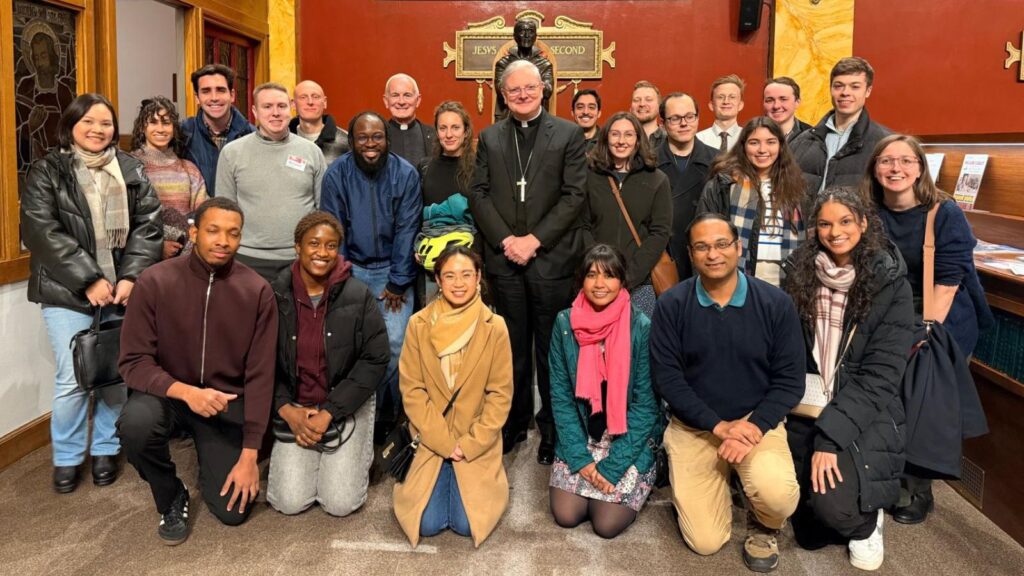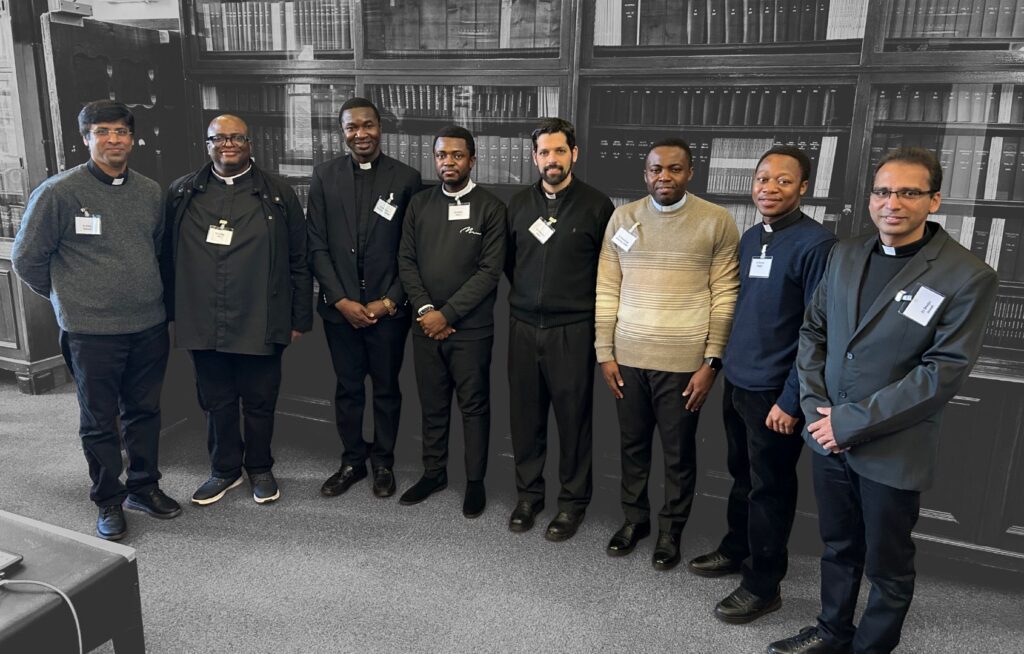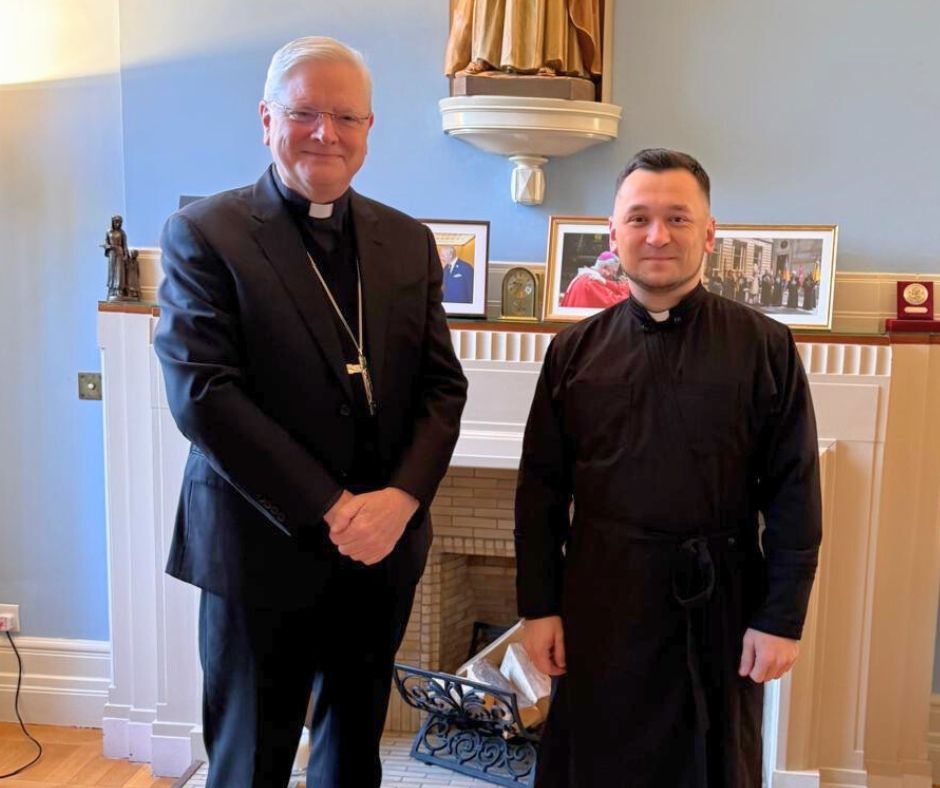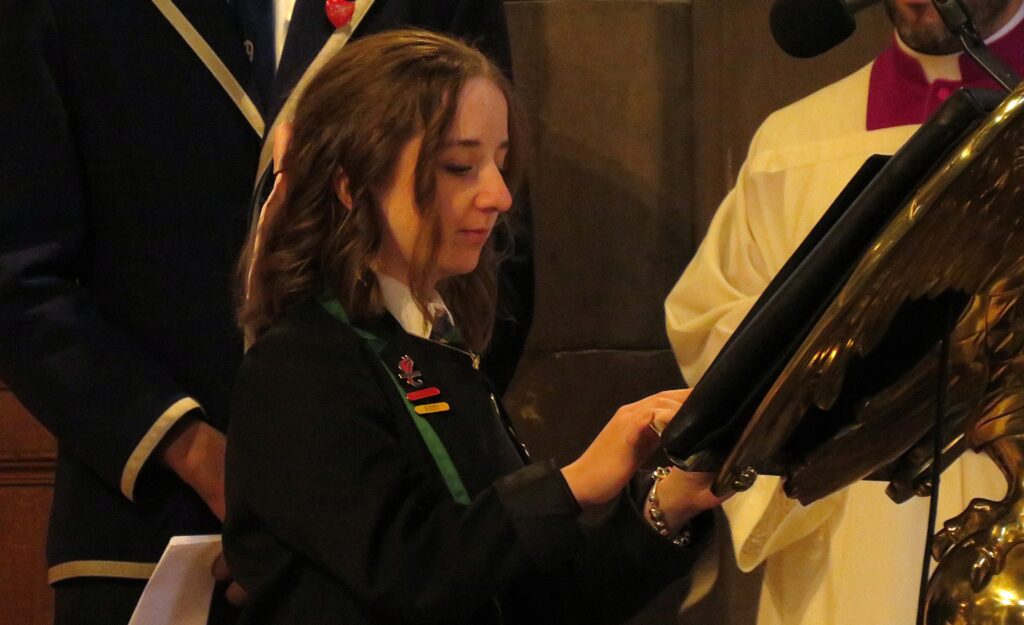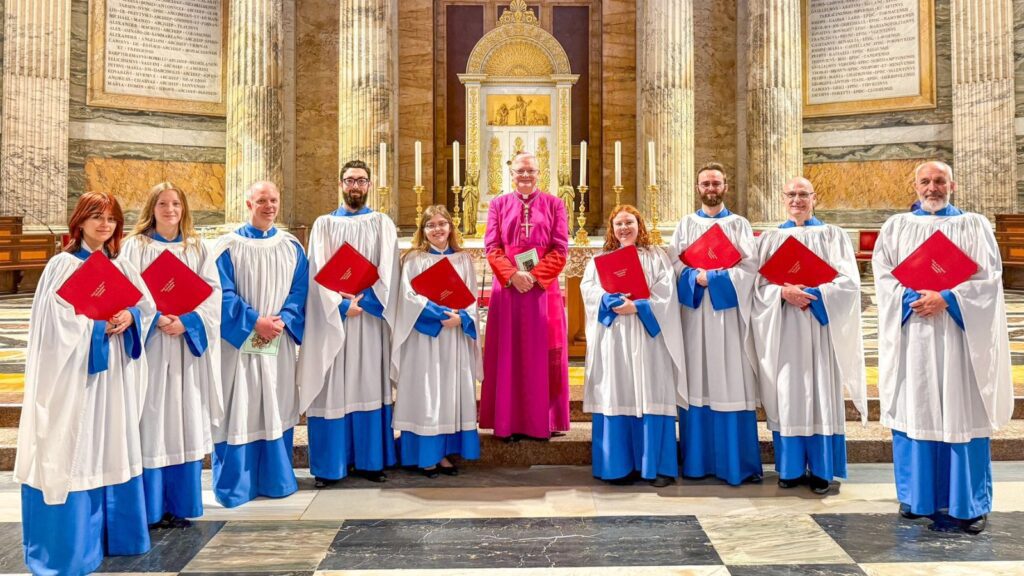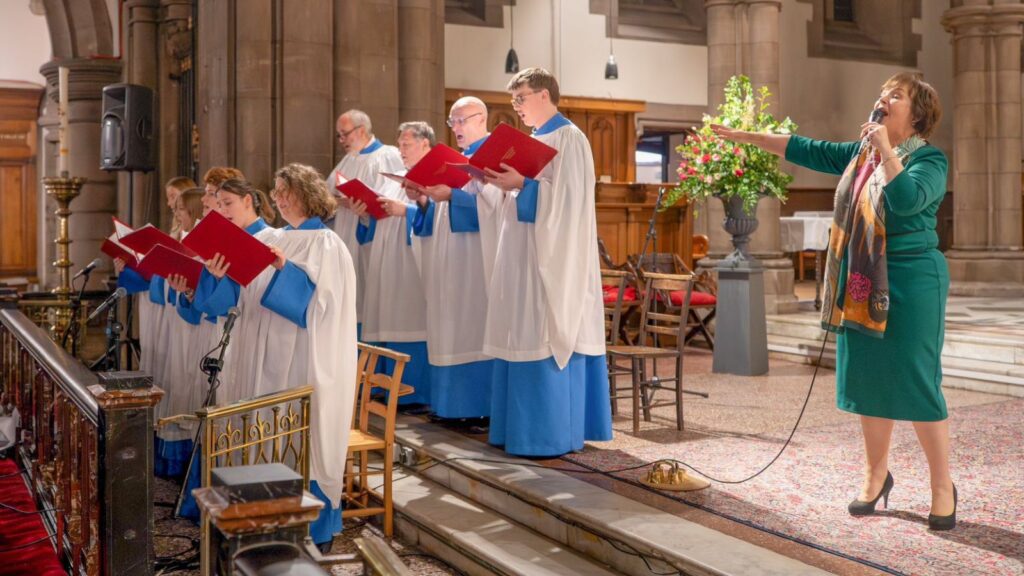Archbishop Cushley is encouraging Catholics to get to Confession in Lent, as part of our spiritual preparation for Advent.
Our Catechetics Commission has compiled this list of Confession times for Churches across the Archdiocese.
See the 'How to go to Confession' guide here. If you have not been for a while and are looking for some advice, see our YouTube playlist here.
***
BALFRON, St. Anthony, Dunmore Street, G63 0TX
Confessions: Advent, Lent, by request.
BALLINGRY, Ss. Kenneth & Bernard, Hill Road, KY5 8NP
Confessions: as announced.
BANKNOCK St. Luke’s, Garngrew Road, Haggs. FK4 1HP
Confessions: Wednesday 6.30pm-6.50pm.
BANNOCKBURN Our Lady & St. Ninian, 52 Quakerfield, Bannockburn, Stirling FK7 8HZ
Confessions: Saturday 5.30pm-6.10pm.
BATHGATE St. Mary 9 Livery Street Bathgate EH48 4HS
Confessions: Monday & Tuesday 9.00am-9.25am; Saturday 4.15pm-4.45pm.
BLACKBURN, Our Lady of Lourdes, 30 Bathgate Road, Blackburn, Bathgate EH47 7LF
Confessions: Saturday 5.15pm-5.45pm.
BLANEFIELD, St. Kessog’s, 4 Campsie Dene Road, Blanefield, Glasgow G63 9BN
Confessions: Advent, Lent, on request; other times to be arranged.
BO’NESS, St. Mary of the Assumption, Linlithgow Road, EH51 0DP
Confessions: Saturday, after morning Mass, 5.30pm-6.00pm.
BONNYBRIDGE, St. Joseph’s, 30 Broomhill Road, Bonnybridge FK4 2AN
Confessions: Tuesday 6.30pm; Saturday 4.30pm.
BONNYRIGG Our Lady of Consolation, Hawthornden Avenue, EH19 2AW
Confessions: as announced; on request.
BOWHILL St. Ninian, Derran Drive, Bowhill, KY5 0JG
Confessions: 30 minutes before Mass; on request.
BROXBURN, SS. John Cantius & Nicholas, 34 West Main Street, Broxburn EH52 5RJ
Confessions: Saturday 4.45pm, Sunday 5.45pm.
BURNTISLAND St. Joseph’s, Cowdenbeath Road, Burntisland KY3 0LJ
Confessions: Tuesdays 6.30pm; on request.
COWDENBEATH Our Lady & St. Bride, 74 Stenhouse Street, KY4 9DD
Confessions: Saturday 10.30am-11.30am.
COWIE The Sacred Heart, Bannockburn Rd, Cowie FK7 7BG
Confessions: Sunday 11.00am-11.20am.
DALKEITH St David’s, 41 Eskbank Road, Dalkeith EH22
Confessions: Saturday 5.00pm-5.40pm; on request during the week.
DALKEITH St. Luke & St. Anne, 12 Stone Place, Mayfield, EH22 5PG
Confessions: Saturday before and after Mass.
DENNY, St. Alexander’s, 100 Stirling Street, Denny FK6 6DL
Confessions: Saturday 5.00pm-5.30pm.
DUNBAR, Our Lady of The Waves, Westgate, Dunbar EH42 1JL
Confessions: Saturday 10.30am-11.00am, 6.00pm-6.15pm.
DUNFERMLINE Our Lady of Lourdes, Aberdour Rd, Dunfermline, KY11 4QZ.
Confessions: Thursday 6.25pm; on request.
DUNFERMLINE St. Margaret East Port, KY12 7JBS
Confessions: Saturday 10.30-11.30am.
DUNS Our Lady & St. Margaret’s, 48 Bridgend, TD11 3EX
Confessions: Saturday 5.30pm-5.50pm; on request.
EAST CALDER, St. Theresa’s, Kilronan Park, 41 Main Street, EH53 0ES
Confessions: Wednesday 9:30am - 9:50am; Saturday 8:30am - 8:50am and available after 9:00am Mass
EDINBURGH
Confession times for Edinburgh churches at bottom of this page.
FALKIRK St. Francis Xavier (1839, 1961), 1 Hope Street, FK1 5AT
Confessions: Saturday, 10.30am-11.15am, 4.15pm-4.45pm.
FAULDHOUSE St. John the Baptist, 115 Main Street, Fauldhouse, EH47 9BJ
Confessions: Monday after 7.00pm Mass; Saturday after 10.00am Mass.
GALASHIELS Our Lady & St. Andrew, 63 Stirling Street, TD1 1BY
Confessions: Saturday 10.30am-11.15am.
GLENROTHES St. Paul (1958), Warout Road, KY7 4ER
Confessions: Wednesday 10.30am; Saturday 10.30am.
GOREBRIDGE St. Margaret, Lady Brae, EH23 4HH
Confessions: as announced; on request.
GRANGEMOUTH, Christ the King, Bowhouse Road, FK3 0HB
Confessions: Saturday 5.25pm-5.55pm during Exposition of the Blessed Sacrament.
GRANGEMOUTH, Sacred Heart, Drummond Place, FK3 9JA
Confessions: Saturday after 10.00am Mass.
HADDINGTON, St. Mary, Poldrate, EH41 4DA
Confessions: Saturday 10.30am-11.00am; Sunday 9.00-9.25am.
HADDINGTON, Sancta Maria Abbey, Nunraw, EH41 4LW
Confessions: at call.
HAWICK, St. Mary & St. David, 15 Buccleuch Street, TD9 0HH
Confessions: before each Mass.
INNERLEITHEN St. James, High Street, EH44 6HD
Confessions: before or after Masses; on request.
INVERKEITHING, St. Peter in Chains, Hope Street, KY11 1LW
Confessions: Saturday 4.30pm; on request.
JEDBURGH, The Immaculate Conception, Old Bongate, TD8 6DR
Confessions: Saturday 5.00pm.
KELSO, The Immaculate Conception, Bowmont Street, TD5 7DZ
Confessions: Sunday 9.00am.
KELTY, St. Joseph, Cocklaw Street, KY4 0DG
Holy Day of Confessions: as announced.
KENNOWAY, St. Giles, Langside Crescent, KY8 5LW
Confessions: Thursday 5.30pm-5.45pm; Saturday 9.15am-9.30am.
KILSYTH, St. Patrick, 30 Low Craigends, G65 0PF
Confessions: Wednesday 6.00pm-7.00pm; Saturday, 10.00am-10.30am, 5.15pm-5.45pm
KIRKCALDY, Our Lady of Perpetual Succour, Dunnikier Road, KY1 2QN
Confessions: 30 minutes before Masses; on request.
KIRKCALDY, St. Pius X, Brodick Road, Templehall, KY2 6EY
Confessions: 30 minutes before Mass; on request.
LARBERT, Our Lady of Lourdes & St. Bernadette’s, 323 Main Street, FK5 4EU
Confessions: Saturday 10.00am-10.15am, 6.00pm-6.15pm; on request.
LENNOXTOWN, St. Machan, Chapel Street, G66 7DE
Confessions: Saturday, after 10.00am Mass; after Vigil-Mass; on request.
LESLIE, St. Mary, Mother of God, High Street, KY6 3AE
Confessions: Saturday 5.30pm.
LINLITHGOW, St. Michael’s, 53 Blackness Road, EH49 7JA
Confessions: Saturday after 10.00am Mass; by arrangement.
LIVINGSTON, St. Andrew’s, 126 Victoria Street, Craigshill, EH54 5BJ
Confessions: Monday 9:30am - 9:50am; Thursday 9:30am - 9:50am Saturday 4:30pm - 5:15pm.
LIVINGSTON, St. Peter’s, 9 Carmondean Centre, EH54 8PT
Confessions: as announced.
LOANHEAD St. Margaret (of Scotland), 16 Clerk Street, EH20 9DR
Confessions: Tues. & Thurs. 9.00-9.15am; Sat. during Holy Hour 11.00am- 12.00pm (alternate months with PENICUIK).
LOCHGELLY, St. Patrick, Station Road, KY5 9QU
Confessions: as announced.
MELROSE, St. Cuthbert, High Cross Avenue, TD6 9SQ
Confessions: Sunday 8.45am-9.00am.
METHIL, St. Agatha 160 Methil Brae, KY8 3LU
Confessions: Mon, Tues, Fri 9.15am-9:30am; Sat 4:15pm-4:45pm.
MILTON OF CAMPSIE, St. Paul, Birdston Road, G66 8BU
Confessions: Saturday after morning Mass.
MUSSELBURGH, Our Lady of Loretto & St. Michael 17 Newbigging, EH21 7AJ
Confessions: Saturday 10.30am-11.00am, 5.15pm.
NORTH BERWICK, Our Lady, Star of the Sea, 9 Law Road, EH39 4PN
Confessions: Monday & Wednesday after morning Mass.
OAKLEY, The Holy Name, Station Road, KY12 9NW
Confessions: on request.
PEEBLES St. Joseph, Rosetta Road, EH45 8JU
Confessions: before or after Masses; on request.
PENICUIK The Sacred Heart, 56 John Street, EH26 8NE
Confessions: Sat. 5.30pm-5.45pm; Sat. during Holy Hour 11.00am-12.00pm (alternate months with LOANHEAD); 5.30pm-5.45pm.
POLMONT, St. Anthony, Maddiston Road, Rumford, FK2 0SB
Confessions: Saturday 10.00-10.30am.
PRESTONPANS, St. Gabriel, West Loan, EH32 9JX
Confessions: Monday 10.30-11.00am; Saturday 5.15pm-5.50pm.
ROSEWELL St. Matthew, 36 Carnethie Street, EH24 9AT
Confessions: as announced; on request.
ROSYTH, St. John & St. Columba, Crossroads Place, KY11 2QL
Confessions: Tuesday 6.25pm; Saturday 10.30am.
SELKIRK, Our Lady & St. Joseph, High Street, TD7 4JX
Confessions: Saturday 5.30pm.
ST ANDREWS St. James, The Scores, KY16 9AR
Confessions: Saturday after 9.30am Mass, 6.00pm-6.30pm; Wed. 6.30pm-6.55pm.
STIRLING Holy Spirit, McGrigor Road, St. Ninian’s, FK7 9BL
Confessions: 9:30 am to 9:50am on Tuesdays or on request.
STIRLING St. Margaret of Scotland, Drip Road, Raploch, FK9 1RR
Confessions: 9:30 am to 9:50am on Wednesdays or on request.
STIRLING St. Mary, Upper Bridge Street, FK8 1ES
Confessions: 9:30 am to 9:50am on Mondays, Thursdays and Saturdays. Fridays after 10:00am Mass, Saturdays 5:00pm to 5:20pm or on request.
STONEYBURN Church of Our Lady, Burnbrae Road, EH47 8DF
Confessions: Thursday 9.30am.
TORRANCE, St. Dominic, School Road, G64 4DB
Confessions: on request.
TRANENT, St. Martin of Tours, 150 High Street, EH33 1HJ
Confessions: Sunday 8.50am-9.20am; Tuesday 7.30pm.
WEST CALDER Our Lady & St. Bridget, 4 West End, EH55 8EF
Confessions: Wednesday 6.00pm-6.50pm; Saturday 4.30-5.00pm.
WHITBURN St. Joseph, Raeburn Crescent, EH47 8HQ
Confessions: Sunday 9.15am-9.45am; on request.
WINCHBURGH, St. Philomena 28 Niddry Road, EH52 6RY
Confessions: Saturday after 9.30am Mass.
Edinburgh churches
ST ALBERT THE GREAT, 24 George Square, EH8 9LD
Confessions: Wednesday 4.00pm-5.00pm; Saturday 11.00am-12noon.
ST ANDREW, 77 Belford Road, Ravelston, EH4 3DP
Confessions: Wednesday 5.00pm-5.45pm.
ST CATHERINE OF ALEXANDRIA, 2 Captains Row, EH16 6QP
Confessions: on request.
ST COLUMBA, 9 Upper Gray Street, EH9 1SN
Confessions: Sunday 6.00pm-6.15pm.
ST CUTHBERT, 104 Slateford Road, EH14 1PT
Confessions: Saturday after 10.00am Mass; at other times by arrangement.
ST GREGORY THE GREAT, Walter Scott Avenue, EH16 5TD
Confessions: Sunday 6.00pm-6.15pm.
HOLY CROSS, 11 Bangholm Loan, EH5 3AH
Confessions: on request.
ST JOHN THE BAPTIST, St. Ninian’s Road, Corstorphine.
Confessions: Saturday 5.15pm-5.45pm; on request.
ST JOHN THE EVANGELIST, 3 Sandford Gardens, EH15 1LP
Confessions: Saturday 7.30pm and by appointment.
ST JOHN OGILVIE, 159 Sighthill Drive, EH11 4PY
Confessions: Saturday 6.00pm. On request after daily Mass.
ST JOSEPH, Broomhouse Street North, Sighthill, EH11 3SB
Confessions: Saturday 10.00am and on request.
ST KENTIGERN, Parkgrove Avenue, Barnton, EH4 7QR
Confessions: Saturday after morning Mass.
ST MARGARET, Hope View, South Queensferry, EH30 9LS
Confessions: Saturday, after 9.30am Mass, 4.20pm-4.50pm; Sunday 9.20am-9.50am.
ST MARGARET, 149 Main Street, Davidsons Mains, EH4 5AQ
Confessions: Saturday after Vigil Mass.
ST MARGARET MARY, Boswall Parkway, Granton, EH5 2JQ
Confessions: on request.
ST MARK, 29 Oxgangs Avenue, EH13 9HX
Confessions: Before Sat Vigil 4.15-4.45pm and before Sun Mass 9.15-9.45am or upon request after any of the 10am weekday Masses.
ST MARY’S CATHOLIC CATHEDRAL, Broughton Street, EH1 3JR
Confessions: Monday-Friday, 1.15pm; Saturday 10.30am-12noon, 5-6pm.
In English & Polish: Monday-Friday. 5.00pm-6.00pm.
SS NINIAN & TRIDUANA, 232 Marionville Road, EH7 6BE
Confessions: Saturday 5.00pm-5.30pm.
ST MARY MAGDALENE, Bingham Avenue, EH15 3HY
Confessions: on request (and Saturday 7.30pm, St John’s, Portobello).
ST MARY, STAR OF THE SEA, 106 Constitution Street, Leith, EH6 6AW
Confessions: Saturday 5.30pm; and on request.
OUR LADY OF POCHAYIV & ST ANDREW’S, 24 Dalmeny Street, EH6 8RG
Confessions: in Ukrainian, Croatian, English, Polish, Russian or Serbian 10.30am-11.00am
before Liturgy and on call.
OUR LADY, MOTHER OF THE CHURCH, 1 Curriehill Road, Currie, EH14 5QA
Confessions: Friday after 10.00am Mass; by appointment.
OUR LADY OF POCHAYIV & ST ANDREWS UKRAINIAN CATHOLIC CHURCH, Dalmeny Street, EH6 8RG
Confessions: in Ukrainian, Croatian, English, Polish, Russian or Serbian 10.30-11.00am before Liturgy and on call.
ST PATRICK, 5 South Gray’s Close, EH1 1TQ
Confessions: Before every Mass, every day Friday & Saturday: 11.40am-12.10pm (and during or after every Mass, and on request, when a priest is available).
ST PETER, 77 Falcon Avenue, Morningside, EH10 4AN
Confessions: Saturday, 11.15am-11.45am and 4:30pm - 5:15pm, and on request.
THE SACRED HEART OF JESUS, 28 Lauriston Street, Lauriston, EH3 9DJ
Confessions: Monday-Saturday 12.00pm-12.25pm; Sunday 6.30-6.45pm.
ST TERESA OF LISIEUX, 120 Niddrie Mains Road, Craigmillar, EH16 4EG
Confessions: 5.05-5.30pm.
All information taken from the Archdiocese of St Andrews & Edinburgh Directory 2025. Dates/times can be confirmed with parishes. Compiled by the Catechetics Commission of the Archdiocese of St Andrews & Edinburgh.

